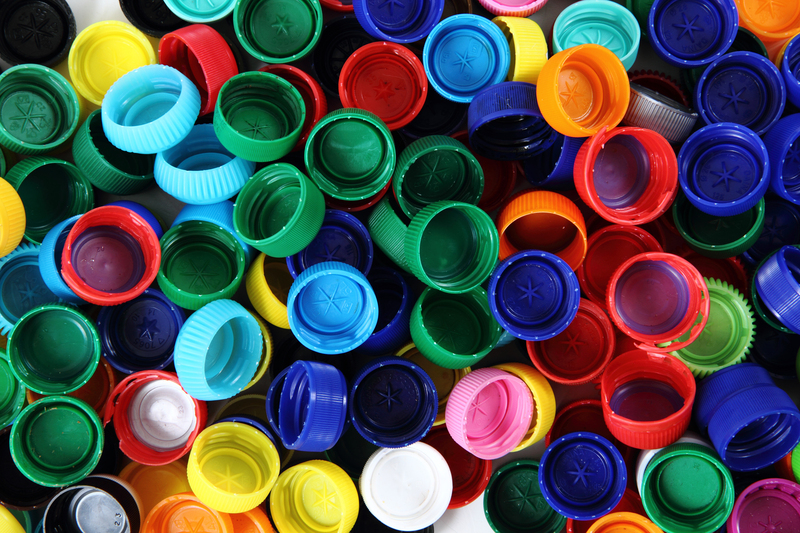Responsible Ways to Say Goodbye to Your Pots and Pans
When it's time to retire your trusty cookware, it can be easy to simply toss old pots and pans into the trash. However, responsible ways to say goodbye to your pots and pans are both environmentally friendly and often surprisingly simple. Whether your cookware is made of stainless steel, nonstick materials, cast iron, or aluminum, understanding how to dispose of your used kitchenware helps reduce landfill waste and can even offer advantages to others. In this comprehensive guide, discover sustainable, ethical, and creative options for getting rid of your old pots and pans.

Why It's Important to Dispose of Cookware Responsibly
Throwing out cookware may seem harmless, but most pots and pans don't biodegrade and can linger in landfills for centuries. Many contain metal, plastic, or chemical coatings that can leach into soil and water. By choosing responsible ways to say goodbye to your cookware, you help preserve natural resources, minimize pollution, and sometimes provide affordable kitchen necessities for others.
Environmental Impact of Improper Cookware Disposal
- Metal Waste: Metals like aluminum and steel can be recycled infinitely but harm the environment if not properly processed.
- Chemical Leaching: Teflon and similar nonstick coatings can release toxic chemicals if incinerated, affecting air and water quality.
- Landfill Overflow: Bulky cookware fills up limited landfill space, taking decades or centuries to break down.
Assess: Is Your Cookware Truly at End-of-Life?
Before proceeding with disposal, ask yourself if the pots or pans are really unusable, or could simply use a little restoration. Assessing the condition can reveal whether your pots and pans might still serve you--or someone else--well.
- Is the handle loose? Handles can often be tightened or replaced.
- Is the bottom warped? Warping affects heating but might be okay for camping or decorative use.
- Are there scratches? Small scratches don't usually hinder functionality, except for nonstick surfaces.
- Peeling nonstick? Peeling coatings make pots unsafe for food, but they may have other uses.
- Rust? Cast iron can typically be re-seasoned and saved unless it's cracked.
Reusing and Repurposing Old Pots and Pans
Give Your Cookware New Life at Home
Before you say goodbye, consider how old cookware can be cleverly repurposed. Many pots and pans ready for disposal can begin a second chapter with a little creativity.
- Garden Planters: Fill pots with soil and use them to grow herbs, flowers, or succulents--drill a hole for drainage!
- Storage Containers: Use large stockpots to store garden tools, utensils, or art supplies in your garage or shed.
- Art Projects: Paint or decorate cookware for use in sculpture or wall art. Their shapes and surfaces are perfect for mosaic work.
- Bird Baths or Feeders: Secure shallow pans in your garden as unique watering spots for birds and pollinators.
- Children's Toys: Cleaned and sanded pans can be added to sandboxes or play kitchens for imaginative play.
Upcycling Nonstick and Damaged Cookware
For nonstick pots and pans beyond kitchen use, consider these fun alternatives:
- Paint trays or palettes: Old lids and shallow pans are useful for home DIY projects.
- Candle holders: Large lids or small pans work well as safe, heat-resistant candle bases.
- Hardware organizers: Store screws, nuts, and bolts in kitchen cast-offs.
Donation: Let Someone Else Enjoy Your Cookware
Where to Donate Used Pots and Pans
Donating still-usable cookware extends its lifespan and helps families or individuals in need. If your pots and pans are in good shape, clean, and free from significant damage (cracked handles, warped bottoms, flaking coatings), consider these organizations:
- Local Thrift Stores: Goodwill, Salvation Army, and local charity shops happily accept donations of usable cookware.
- Shelters: Homeless or women's shelters often need kitchen supplies for clients setting up new homes.
- Community Kitchens: Soup kitchens and food banks may accept your gently used pans or pots.
- College Students: Donate via campus groups or local Facebook pages for students on a budget.
Always call ahead before donating to ensure the organization currently accepts cookware donations, and ask about specific drop-off procedures.
Tips for Donating Pots and Pans
- Wash cookware thoroughly.
- Attach lids to matching pots with tape or string.
- Inspect nonstick surfaces--avoid donating items with significant peeling or scratches.
- Bundle smaller items together for easier distribution.
- Label bags or boxes with "kitchenware" for clear identification.
Recycling: Eco-Friendly Ways to Dispose of Cookware
If your pots and pans truly cannot be reused or donated, recycling is your next best responsible option. Recycling old cookware ensures valuable materials are saved from the landfill and can be transformed into new products.
What Types of Cookware Can Be Recycled?
- Stainless Steel: Most recycling centers accept stainless steel pots and pans. They are melted down for reuse in other products.
- Aluminum: Aluminum is highly recyclable but may need to be separated from non-metal parts (like handles or lids).
- Cast Iron: Most metal recyclers accept cast iron, thanks to its lasting value and weight.
- Nonstick or Teflon: Some centers accept nonstick pans, but many reject them due to the coating. Always call ahead and ask.
- Copper: Copper pans are sought after at scrap yards. Remove any plastic or wooden parts if possible.
Note: Some curbside recycling programs do not take cookware. You'll usually need to bring them to a designated scrap metal yard or a community recycling event.
How to Prepare Cookware for Recycling
- Remove non-metal parts: Take off handles, knobs, or any plastic or silicone components.
- Clean cookware: Remove as much grease and debris as possible.
- Group similar metals: Separating aluminum from stainless steel can sometimes increase the recycling value.
Finding a Recycling Facility Near You
Use resources like Earth911.com or local government recycling directories to find the closest center for pots and pans disposal. Simply enter "cookware" or "metal pans" in the search bar. These centers can also advise you on whether they accept ceramic or glass cookware, which typically have different recycling processes.
Manufacturer Take-Back and Trade-In Programs
A growing number of cookware companies now offer take-back or trade-in programs to encourage responsible disposal of old pots and pans when you upgrade.
Popular Brands and Their Initiatives
- GreenPan: Offers recycling programs for old cookware returned with your purchase of a new piece.
- Calphalon: Partners with TerraCycle to recycle their aluminum cookware.
- Le Creuset: Certain locations occasionally run trade-in events--check with local retailers for updates.
- Local Kitchen Stores: Some independent kitchenware shops offer discounts when you trade in older items for new ones.
Check your brand's website or reach out to their customer support to see whether they offer responsible cookware recycling.
Composting: Earthy Goodbye for Wooden Utensils and Handles
While not applicable to your pans themselves, if your cookware features wooden handles or utensils, these can often be composted after removing metal screws or plastic parts. Break them down into small pieces and add to your home compost pile for a truly green farewell.
Proper Disposal Options When All Else Fails
If reuse, donation, recycling, or trade-in are unavailable or impossible for your particular items, be sure to understand your local rules for safe and responsible cookware disposal.
- Bulk Trash Pickup: Some municipalities have special collection days for bulky household goods, including metal wares.
- Landfill Guidelines: Occasionally, specialized drop-off points exist for odd household waste. Call your waste authority for instructions.
- Hazardous Waste Collection: If your cookware is coated in Teflon or contains other chemicals, bring it to designated hazardous waste collection events.

Frequently Asked Questions about Getting Rid of Old Pots and Pans
Can I put old pots and pans in the recycling bin?
Most standard recycling bins do not accept cookware, because their machines are not set up for bulky metals or items with mixed materials. Take them to a scrap metal facility or recycling center.
Are nonstick or Teflon pans recyclable?
Sometimes, but not all recycling centers or scrapyards accept nonstick pans due to their chemical coatings. If you aren't sure, call ahead and ask about your specific items. Removing any plastic, silicone, or wooden parts increases your chance of a successful drop-off.
Is it safe to donate scratched pans?
Light scratches on stainless steel or cast iron don't diminish safety. However, nonstick cookware with significant scratches or peeling should not be donated for cooking purposes. Instead, find creative repurposing options or recycle them if allowed.
Can old pots and pans go into a scrap metal bin?
Yes! Most metal recyclers welcome any kind of metal cookware as long as handles or non-metal components are removed. This includes steel, aluminum, and cast iron.
Conclusion: A Greener Kitchen Starts with Responsible Goodbye
By taking a little extra time to responsibly dispose of your pots and pans, you help protect the environment, conserve resources, and possibly assist someone in need. Whether through donation, recycling, creative upcycling, or trade-in programs, there are many responsible ways to say goodbye to your pots and pans. Try out a few of these suggestions next time your cookware reaches the end of its journey--and make your kitchen a little greener in the process.
